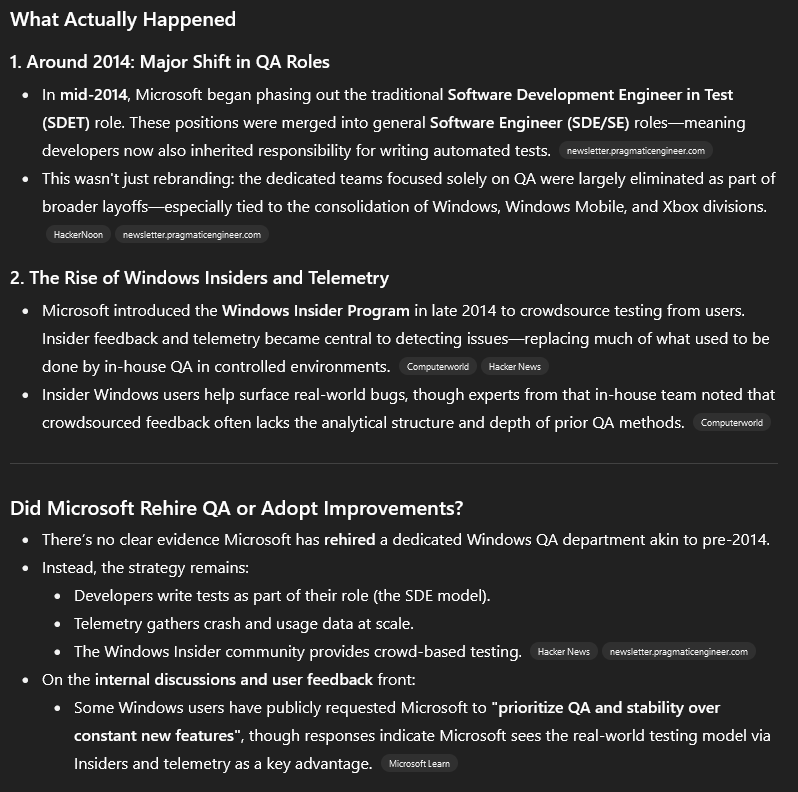Sonik
Member
Of course the update and the problem are related to each other. No one is claiming otherwise. You just don't understand the relationship between OS and hardware.
Did the update cause the problem or did it reveal an existing problem somewhere else?
From a user perspective it makes no difference, and users obviously shouldn't have to be the ones to distinguish.
From a developer perspective it makes all the difference as the company responsible has to pay engineers (software, hardware or both) to fix it.
This happens very often in the computing world, and outside of it too. It happens in any engineering project where multiple contractors are involved (ie. most of them).
That's why I said earlier in this thread that it could be down to politics (arguments between the different companies on who is actually responsible for fixing this).
You'd be surprised how common these issues come up that fall in a sort of grey area between what's clearly the responsibility of one team and the responsibility of another team. That's what I mean by politics. If you've worked in software development you've probably experienced it.
I've replied to this, this is like an arsonist firebombing a building and you blaming the building's owner for the fire because he didn't take all the necessary fire protection precautions. Sure, the owner could have done better but the one responsible for the fire is the goddamn arsonist


